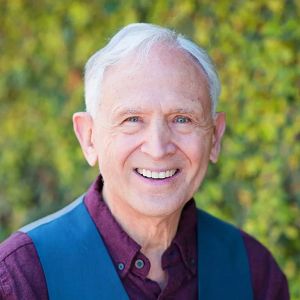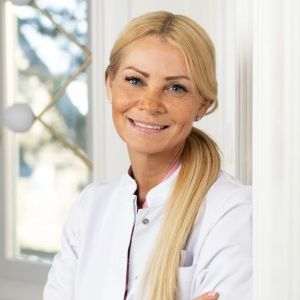The Kusnacht Practice
Verified Center
This provider's information has been quality-checked by Recovery.com's Research Team for accuracy and completeness, including center verification through appropriate third-party organizations.
Treatment Focus
This center treats substance use disorders and mental health conditions. You'll receive individualized care catered to your unique situation and diagnosis, learn practical skills for recovery, and make new connections in a restorative environment.
Primary Level of Care
Offering intensive care with 24/7 monitoring, residential treatment is typically 30 days and can cover multiple levels of care. Length can range from 14 to 90 days typically.
Treatment Focus
This center treats substance use disorders and mental health conditions. You'll receive individualized care catered to your unique situation and diagnosis, learn practical skills for recovery, and make new connections in a restorative environment.
Primary Level of Care
Offering intensive care with 24/7 monitoring, residential treatment is typically 30 days and can cover multiple levels of care. Length can range from 14 to 90 days typically.
Private Pay
You pay directly for treatment out of pocket. This approach can offer enhanced privacy and flexibility, without involving insurance. Exact costs vary based on program and length of stay. Contact the center for specific details.
The Kusnacht Practice
The Kusnacht Practice
About The Kusnacht Practice
The Kusnacht Practice gère des centres exclusifs à Zurich et à Genève, s’imposant comme un leader dans le traitement des addictions et des troubles psychologiques. Ce centre ultramoderne combine les normes de qualité suisses les plus élevées avec une équipe de médecins, de psychiatres et d’experts en santé mentale de renommée internationale.
Nous estimons que la santé et le bien-être sont des piliers précieux et irremplaçables pour pouvoir jouir d’une bonne qualité de vie. Pour rétablir le fragile équilibre entre le corps, l’esprit et l’âme, le cabinet de renommée mondiale, The Kusnacht Practice, s’appuie sur des programmes de traitement véritablement créés sur mesure.
Soins de santé mentale sur mesure et retraites exclusives
The Kusnacht Practice est spécialisé dans le traitement de divers troubles, notamment les addictions, la dépression, les traumatismes, l’épuisement professionnel, l’anxiété, les troubles de l’alimentation et la gestion de la douleur chronique. Il propose des programmes tels que son innovant BIO-R®, ou Biomolecular Restoration, une méthode hautement efficace et personnalisée de désintoxication, de perte de poids et de lutte contre le vieillissement. The Kusnacht Practice offre des soins aux clients dans le respect total de leur vie privée, avec le standard du luxe suisse 5 étoiles.
Pour répondre aux besoins uniques de chaque client, The Kusnacht Practice propose différents types de retraites et de programmes de soins sur mesure. Il propose une retraite pour les dirigeants et les VIP, une retraite uniquement pour les femmes, une thérapie familiale personnalisée, un séjour de renforcement du corps et de l’esprit, et bien plus encore.
Méthodes de guérison innovantes
The Kusnacht Practice intègre une technologie de pointe, une expertise de premier plan et des hébergements de luxe pour optimiser son approche de traitement sur mesure. En fonction de leur diagnostic, les clients suivent 6 à 8 séances individuelles par jour dans leur résidence privée pendant un séjour de 6 semaines minimum.
Certains de leurs traitements exclusifs comprennent la thérapie cognitivo-comportementale (TCC), la désensibilisation et le retraitement par mouvements oculaires (EMDR), la thérapie familiale, la psychologie positive, la rétroaction biologique et la rétroaction neurologique. Les nouvelles méthodes de rétablissement comme la stimulation magnétique (rTMS, tDCS), la restauration biomoléculaire (BIO-R®) et la thérapie par hypoxie-hyperoxie intermittente (IHHT) permettent de créer des plans de traitement complets. L’expérience somatique, les exercices de pleine conscience, l’hypnothérapie et l’utilisation de la chaise limbique viennent compléter cette approche holistique. Pour favoriser le bien-être à long terme, The Kusnacht Practice propose un vaste programme de soins continus comprenant des séances de thérapie de suivi, des réunions de soutien et un coaching de rétablissement.
Hébergement de classe mondiale
Pendant leur séjour à The Kusnacht Practice, les clients résident dans leur propre villa privée 5 étoiles surplombant les eaux scintillantes du lac de Zurich, un cadre idyllique pour renforcer le bien-être mental.
Le mobilier haut de gamme, les œuvres d’art grandioses, la gastronomie et les vues à couper le souffle évoquent l’exclusivité et la sophistication, mettant les clients à l’aise et leur permettant de se concentrer sur leurs traitements. Les services de conciergerie disponibles 24 h/24 et 7 j/7 offrent le confort d’un chez-soi pendant le traitement et un conseiller à demeure fournit un soutien en toute discrétion, afin de donner aux clients un espace pour se détendre. Le cas échéant, The Kusnacht Practice peut prendre des dispositions pour que les clients puissent recevoir des visites de leurs proches.
Highlights from the Center
Highlights
These highlights are provided by and paid for by the center.
Concierge Approach
One Client at a Time
Perfect for UHNWI
Private Villa
Center Overview
Treatment Focus
This center treats substance use disorders and mental health conditions. You'll receive individualized care catered to your unique situation and diagnosis, learn practical skills for recovery, and make new connections in a restorative environment.

The Kusnacht Practice
Pricing and Program Length
Estimated Center Costs
The cost listed here (starting at CHF 117,300/week), is an estimate of program cost. Center price can vary based on program and length of stay. Contact the center for more information. Recovery.com strives for price transparency so you can make an informed decision.
Recovery.com Verified Listing
Recovery.com verified that the name, location, contact information and license to operate for this treatment provider are valid and up-to-date.

Licensed by Canton of Zurich
Recovery.com is an independent, third-party mental health resource. Verification does not imply endorsement and does not guarantee the quality of treatment services.
Meet Your Care Team

Dr. med. vet. Antoinette Sarasin Gianduzzo
Director of Biomolecular Restoration (BIO-R®), Nutrition & Lifestyle, Member of Board of Directors

Dr. Prof. Dr. Med. Georg Schulthess
Chief Medical Officer

Elena Kusnezowa
Psychiatrist and Psychotherapist
MD

Melissa Nobile
Psychologist and Clinical Operations Manager Geneva

Dr. med. Pierre Sindelar
Medical Director Geneva

Peter A Levine
Psychotherapist
Ph.D.

Dr. med. univ. Anne-Cathérine Widlowski
Specialist in Internal Medicine

Dr. med. László Ürögi
Head of Psychiatry, Psychotherapy & Relapse Prevention

Dr. med. univ. Wolfram Gmeiner
Senior Lead Psychiatrist

Prof. Dr. med. Alfred Mahr
Specialist Internal Medicine

Dr. med. Verena Immer
Doctor in Integrative & Anti-Aging Medicine

Dr. med. Jean-Marc Sobczyk
Doctor in Integrative & Anti-Aging Medicine

Jurelnarde (Jojo) Abellanosa
Medical Nurse

Nathalie Karasek
Medical Nurse

Melissa Wachholz
Medical Nurse

Julia Visser
Medical Nurse

Saskia Groeneveld
Medical Nurse

Dean Gustar
Relapse Prevention Specialist

Dr. phil. Olivia Bolt
Senior Lead Psychotherapist

Nika Blecich
Neuromodulation Manager

Margje de Rooij
Relapse Prevention Specialist

Dr. sc. med. Martin Zozman
Head of Nursing and Clinical Quality




Your Care Options
Specializations
Co-Occurring Disorders
A person with multiple mental health diagnoses, such as addiction and depression, has co-occurring disorders also called dual diagnosis.
Executives
Executive treatment programs typically directly support the needs of people who manage businesses and may provide flexible schedules and office space to allow work during treatment.
One-to-One
Patients work with their treatment team members on a 1-on-1 basis, keeping their journey and treatment fully private and personalized.
Eating Disorders
An eating disorder is a long-term pattern of unhealthy behavior relating to food. Most people with eating disorders have a distorted self-image.
Sex Addiction
Compulsively seeking out sex can easily become a problem. This addiction is detrimental to relationships, physical health, and self-esteem.
ADHD, ADD
ADHD is a common mental health condition caused by dopamine imbalance. Common symptoms include inattention, hyperactivitiy, and impulsivity.
Burnout
Burnout entails mental and physical exhaustion, and leads to a severe lack of fulfillment. This condition is often caused by overwork.
Who We Treat
Young Adults
Emerging adults ages 18-25 receive treatment catered to the unique challenges of early adulthood, like college, risky behaviors, and vocational struggles.
Adolescents
Teens receive the treatment they need for mental health disorders and addiction, with the added support of educational and vocational services.
Executives
Executive treatment programs typically directly support the needs of people who manage businesses and may provide flexible schedules and office space to allow work during treatment.
Older Adults
Addiction and mental health treatment caters to adults 55+ and the age-specific challenges that can come with recovery, wellness, and overall happiness.
Professionals
Busy, high-ranking professionals get the personalized treatment they need with greater accommodations for work, privacy, and outside communication.
Treatment Services
Residential
In a residential rehab program, patients live onsite, with access to daily treatment and 24-hour care. An average stay is 30-90 days.
Outpatient
During outpatient rehab, patients attend a structured treatment program while continuing to live at home.
Licensed Primary Mental Health
Some primary care providers offer mental health diagnosis and treatment. This can prevent patients from developing more serious conditions.
Intensive Family Program
Some rehabs offer intensive programs for loved ones. Group and individual therapy sessions help everyone heal, and improve family dynamics.
Intensive Outpatient Program
In an IOP, patients live at home or a sober living, but attend treatment typically 9-15 hours a week. Most programs include talk therapy, support groups, and other methods.
Detox
Detox fully and safely removes toxic substances from the body, allowing the next steps in treatment to begin with a clean slate.
Retreat
These curated experiences promote physical, mental, and spiritual well-being, and provide a break from the busy pace of daily life.
Approaches
Personalized Treatment
The specific needs, histories, and conditions of individual patients receive personalized, highly relevant care throughout their recovery journey.
One-to-One
Patients work with their treatment team members on a 1-on-1 basis, keeping their journey and treatment fully private and personalized.
Holistic
A non-medicinal, wellness-focused approach that aims to align the mind, body, and spirit for deep and lasting healing.
Evidence-Based
A combination of scientifically rooted therapies and treatments make up evidence-based care, defined by their measured and proven results.
Therapies
Stress Management
Patients learn specific stress management techniques, like breathing exercises and how to safely anticipate triggers.
Physiotherapy
Also called physical therapy, this approach includes exercise and various medical treatments for injury, pain, and disease.
1-on-1 Counseling
Patient and therapist meet 1-on-1 to work through difficult emotions and behavioral challenges in a personal, private setting.
Family Therapy
Family therapy addresses group dynamics within a family system, with a focus on improving communication and interrupting unhealthy relationship patterns.
Somatic Experiencing
This method treats emotional trauma stored in the body. A therapist helps patients work through the physical feelings associated with emotional pain.
Trauma-Specific Therapy
This form of talk therapy addresses any childhood trauma at the root of a patient's current diagnosis.
Conditions We Treat
Post Traumatic Stress Disorder
PTSD is a long-term mental health issue caused by a disturbing event or events. Symptoms include anxiety, dissociation, flashbacks, and intrusive thoughts.
Anxiety
Anxiety is a common mental health condition that can include excessive worry, panic attacks, physical tension, and increased blood pressure.
Depression
Symptoms of depression may include fatigue, a sense of numbness, and loss of interest in activities. This condition can range from mild to severe.
Schizophrenia
Schizophrenia is a serious mental health condition that causes hallucinations, delusions, and disordered thinking.
Codependency
Codependency is a pattern of emotional dependence and controlling behavior. It's most common among people with addicted loved ones.
Suicidality
With suicidality, a person fantasizes about suicide, or makes a plan to carry it out. This is a serious mental health symptom.
Pornography Addiction
A person with a porn addiction is emotionally dependent on pornography to the point that it interferes with their daily life and relationships.
Gambling
Excessive, repetitive gambling causes financial and interpersonal problems. This addiction can interfere with work, friendships, and familial relationships.
Substances We Treat
Cocaine
Cocaine is a stimulant with euphoric effects. Agitation, muscle ticks, psychosis, and heart issues are common symptoms of cocaine abuse.
Prescription Drugs
It's possible to abuse any drug, even prescribed ones. If you crave a medication, or regularly take it more than directed, you may have an addiction.
Benzodiazepines
Benzodiazepines are prescribed to treat anxiety and sleep issues. They are highly habit forming, and their abuse can cause mood changes and poor judgement.
Ecstasy
Ecstasy is a stimulant that causes intense euphoria and heightened awareness. Abuse of this drug can trigger depression, insomnia, and memory problems.
Co-Occurring Disorders
A person with multiple mental health diagnoses, such as addiction and depression, has co-occurring disorders also called dual diagnosis.
Psychedelics
Hallucinogenic drugs—like LSD—cause euphoria and increased sensory experiences. When abused, they can lead to depression and psychosis.
Drug Addiction
Drug addiction is the excessive and repetitive use of substances, despite harmful consequences to a person's life, health, and relationships.
Languages
Aftercare
Care Designed for Your Needs
Personal Amenities
Amenities
Special Considerations
Executive Program
Addiction and mental health treatment for executives typically involves high discretion, greater technology access, and more private, 1-on-1 care.
Activities
Off-Site Activities
Learn More About the Center
Biomolecular Restoration
As one of their 4 treatment pillars, discover how biomolecular restoration realigns the body.
Unique 360 Approach
Learn more about their integral treatment elements.
Hospitality Services
Discover the comforts of home with their bespoke services and accommodations.
International Interventions
Learn more about how The Kusnacht Practice can help families with early intervention.





